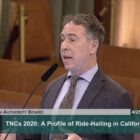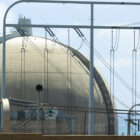San Franciscans know the chilly fog that blankets the city almost every day, but they might not know another fog is lurking in the city’s sewer system: fats, oils and grease (F.O.G).
The city spends about $3.5 million annually to unclog sewers filled with fats, oils and grease from food service establishments, according to the San Francisco Public Utilities Commission.
This week the Board of Supervisors voted unanimously in favor of an ordinance by Supervisor Eric Mar that requires all restaurants that handle fats, oils and grease to install devices to capture the discarded waste and for the devices to be properly maintained and cleaned.
“Currently San Francisco law prohibits dumping of fats, oils and grease in drains leading to our sewer system, but the current law has not been successful preventing F.O.G entering the sewers. It’s estimated that over 40 percent of the sewer system service work orders are F.O.G related,” said Mar.
Karen Hurst, project manager for the utilities commission, said inspectors have been working for a number of years with restaurants in educating them on best management practices, including how to discard fats, oils and waste.
“The one thing we found out is that we weren’t focused on the grease traps themselves. No one really looks at them after they are put in. There might be restaurants who haven’t cleaned it in the past five years and it just becomes a hard and crusty,” said Hurst.
Hurst also said finance help would be made available for restaurants that need to install a grease capturing equipment, including reducing sewer service charges by 14.2 percent, which would pay for the equipment within one to three years.
Kevin Westlye, executive director of the Golden Gate Restaurant Association, which has over 900 restaurants as members, said he supports the legislation because it will weed out the restaurants that are not obeying the city code.
“This really addresses the worst violators who create a lot of grease and who have no system in place right now,” said Westlye.
The ordinance takes effect on April 1.









